International Community Development Profile: Tobadina Kahemela Family
In this series, families in the Reaching Children’s Potential (RCP) Demonstration Program in Tanzania explain how their participation improves their lives. Global Volunteers’ RCP Program engages short-term volunteers to help parents deliver essential services improving health, eradicating hunger, and enhancing cognition – with the goal of eliminating child stunting in the Ukwega Ward and throughout Tanzania. Through RCP, families obtain the nutrition, health care, knowledge, technology, and encouragement needed to combat stunting, and to ensure their children can realize their full potential. The RCP Program is a child-focused, parent-driven, family-centered, and community-led comprehensive effort. It begins with pregnancy, and continues through the 18th birthday, with a focus on the first 1,000 days of life. Read Tobadina Kahemela’s interview about the RCP Program here.
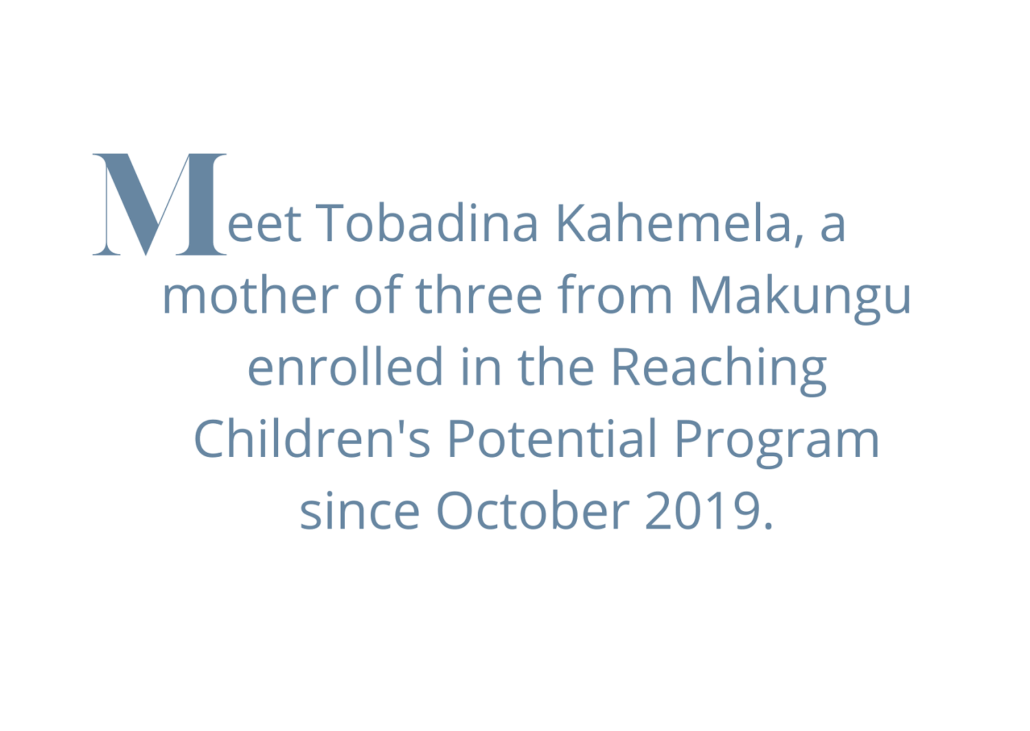
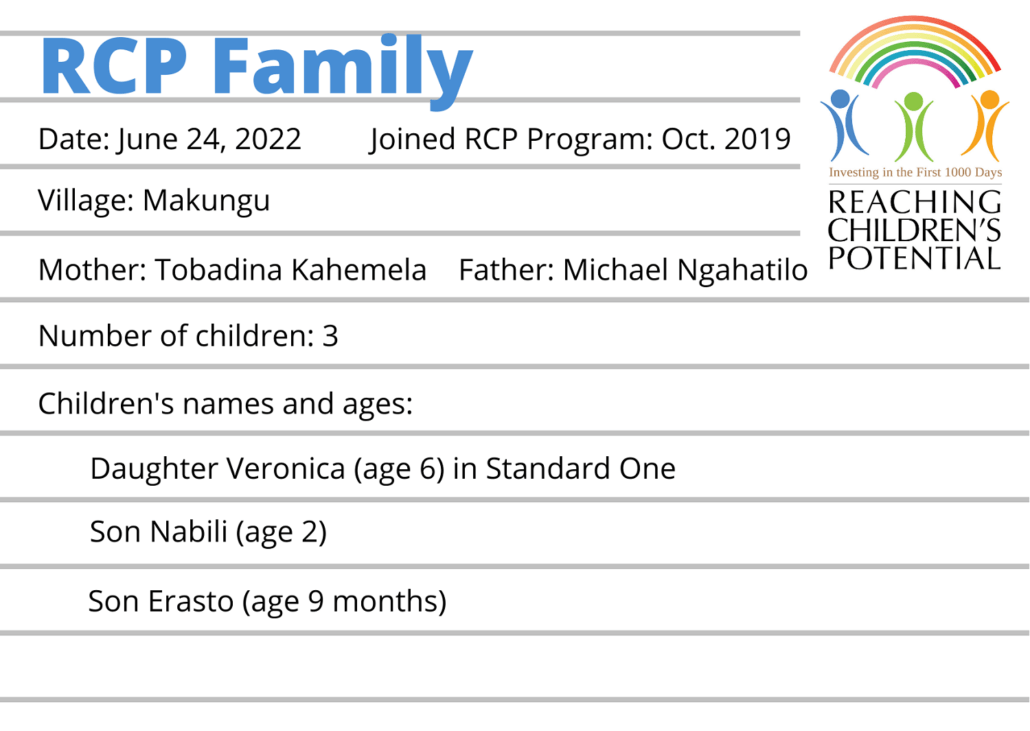
Tobadina, we’re interested in your background and your daily life. Can you tell us about where you grew up and what a normal day is like for you?
I was born and raised in Makungu, but my husband’s origin is in another village called Idunda. We met here in Makungu when my husband was coming for his business. He likes Makungu and that is why after marriage, he decided to move here. I appreciate Makungu because there is a fertile land and also money circulation is bigger so anyone can survive even by cooking something and walking around the village to sell it. It is a very nice place. Our education level is standard seven. We support each other in everything.
I usually wake up at 6:00 in the morning and prepare Veronica for school and do some domestic activities. I spend half of my time at home and the other half in the field. We farm mostly beans and corn, but also other crops like potatoes, cassava, bananas, yams, and avocados. I fetch water in the valley, which is very close — like five minutes from here. When I get time to relax, I play with my children, sleep, or sometimes read my Bible. It is very rare for me to see my friends because everyone is too busy.
What can you tell us about your children, Tobadina? How did you choose their names?
Veronica likes to write a lot. She always tells me that she wants to study hard so that she can go to the secondary school level. She often sees some older students in the village going to school and she admires them. Veronica is doing fine, although she has not captured how to read well. She is just capable of counting numbers and drawing. I do make sure as a mother that after school hours I keep on educating my daughter so that she can succeed in reading and writing well. Veronica’s performance at school is improving day by day and the program has been very helpful to us parents to make sure we provide and help our children grow better. I’m not sure of what Nabili or Erasto like because they are still young. Veronica was named by her grandmother and she named her after one of her aunts. In the Roman Catholic faith, Veronica means “the one who wiped the face of Jesus”. As for Nabili, it is an Islamic name, but I just loved the meaning of it, which is “strong man”. I would like my children to become doctors or nurses in the future.
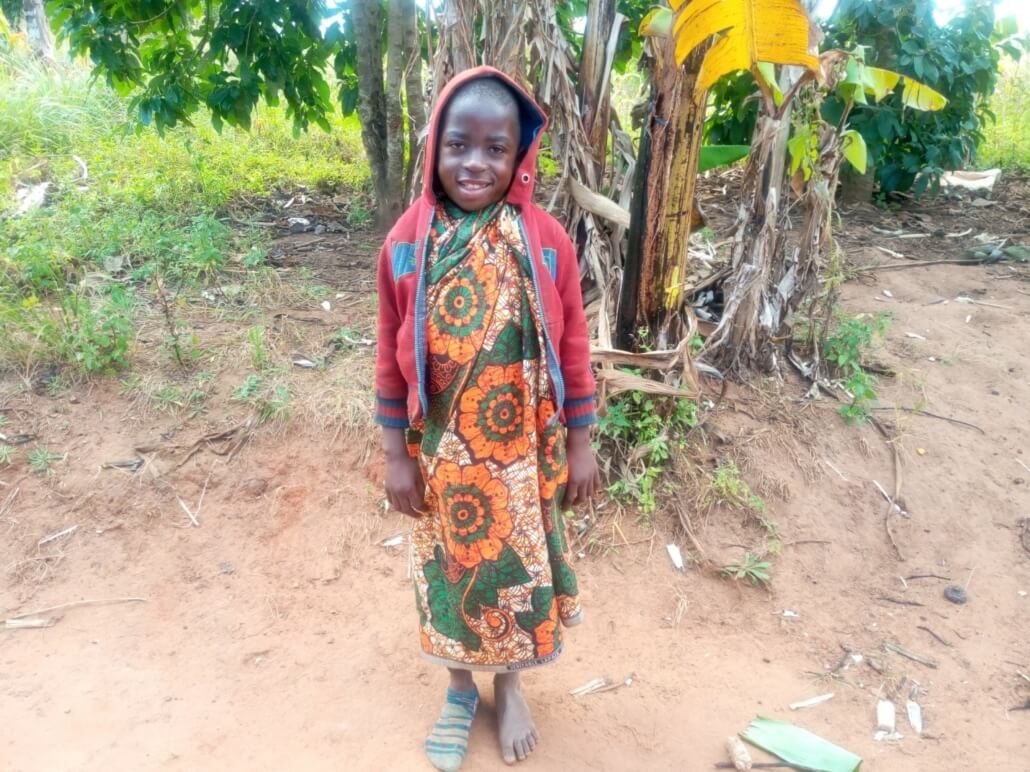
When you learned about hand-washing stations, what did you decide to do at home? How has the hand-washing station helped your family?
When I first learned about hand-washing stations, I decided to share the knowledge with our family — mostly my husband. I also started to train Veronica. My husband was very receptive to the hand-washing stations and he liked the idea. Veronica also liked using the hand-washing station since from the beginning when it was installed, it was not hard work for me to train her. The hand-washing stations have been a very easy and important technology that has helped us a lot. Before having the hand-washing station, I used to place a bucket somewhere outside the home for everyone to wash their hands in it, and I didn’t know that I was stimulating diseases and not emphasizing hygiene since everyone was washing their hands in the same water. After receiving knowledge on the hand-washing station, I realized that I was not doing it right. That is why my family and I had been suffering from stomach fever many times. After we started using the hand-washing station with soap and clean water, my family has become very healthy and it is very rare to find someone suffering from diseases. It is also an easy way to wash our hands immediately after touching something that is dirty. The hand-washing station is a great way to effectively wash our hands without touching anything else which can be contaminated.
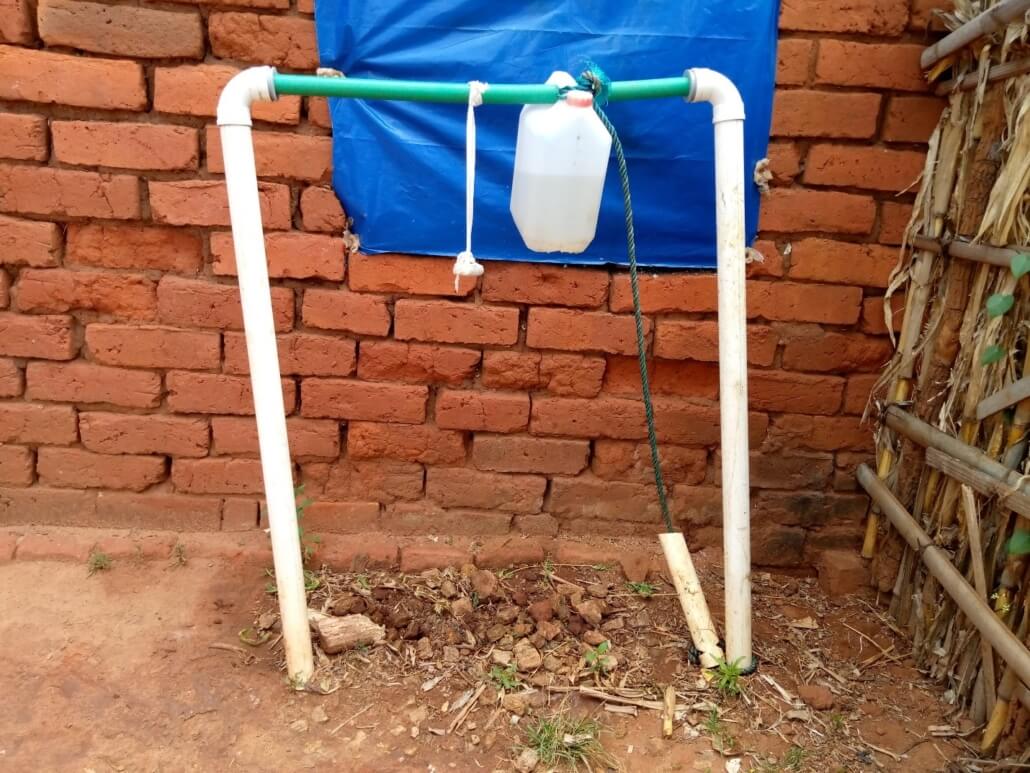
Have the Rise Against Hunger meals and fortified porridge been important for you and your children’s nutrition? What other foods does your family eat?
The Rise Against Hunger meals are very important and helpful because first, they are a very delicious meal. I eat the meals twice per day. When cooking the meals, I just add a little salt and oil. I really love the food because I always feel stronger when I eat it and I produce breast milk all the time. Veronica is also eating the meals at school. She likes them more than any other food and since she started eating them, her body has become a little fat because she was formerly very skinny.
The meals, including the fortified porridge, provided at school have had a very positive impact since they help the children concentrate more on their studies without thinking about what they are going to eat during class hours. Also, the meals provided at school are very helpful for the children. For example, you might find that parents have been at the farm the whole day and after school hours, a child arrives home and finds no one is there to prepare food for them. But since the child has eaten porridge at school, the child has a full stomach and is not hungry until their parents come back.
My family eats three or four times a day. I have also made my own porridge that I always cook for my children, which has a mixture of corn, rice, and millet. Other foods that we eat are rice, ugali, spaghetti, sardines, fish, meat, vegetables, and fruits, which are bananas and avocados.
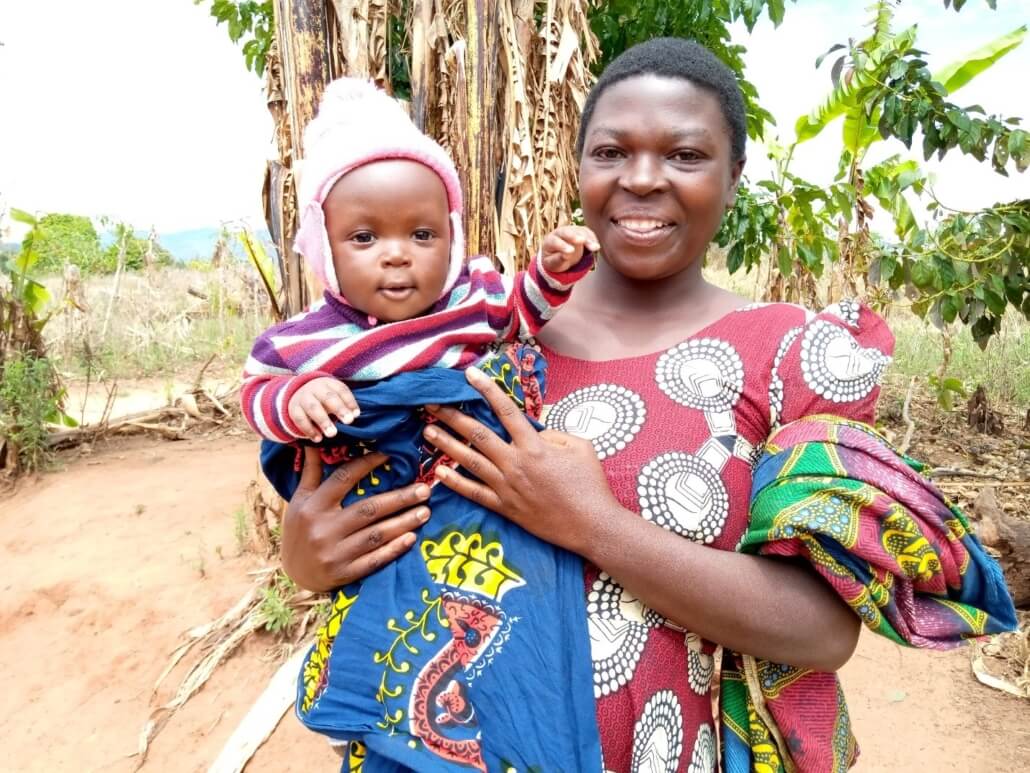
“The meals, including the fortified porridge, provided at school have had a very positive impact since they help the children concentrate more on their studies without thinking about what they are going to eat during class hours.”
– Tobadina Kahemela, RCP mom
What are the personal changes you’ve made in your life since joining RCP that have resulted in better health for you and you children? What are you doing differently now?
I have changed a lot since I joined the program. When Veronica was a baby, before I was in the program, I started to feed her solid food when she was three weeks old and my mother and mother-in-law insisted that I should give the child porridge at that age because she is not get getting enough of my breast milk. So I fed her food very early and she was growing a little weak. But with Nabili, I already got the knowledge of not feeding the baby any solid food until they are six months old, so I took that into action and I passed the knowledge to my husband. When Nabili was born, I just continued to eat a variety of good food to give me enough breast milk for my child and the Rise Against Hunger meals were very helpful with this. I did the same when my third child, Erasto, was born. It is a great step. They both got enough of my breast milk whenever they were hungry. They were very healthy and active, too. Our parents again advised us to give Erasto porridge when he was one month, but this time I refused and told them the reason why I shouldn’t give them solid food before six months and they accepted. I’m very happy that I got this knowledge of exclusive breastfeeding for six months because it has been very helpful.
I have also learned the importance of vaccination, especially Tetanus, even for adults. And I now give my family a variety of food. Before I attended the nutrition workshop, I used to prepare ugali and beans in the morning and my family ate that sometimes in the afternoon and evening as well, which was not right. It is not like we couldn’t afford to get other foods so that we can cook a variety of things, but I didn’t know the importance of getting a variety of foods for the family. So now I try my best to make sure that we get a variety of foods in a day because most of the foods we cultivate ourselves.
In what other ways as you educating yourself about improving health, nutrition, and cognition?
As a mom, I make sure that my children get a balanced diet and a variety of foods. I also make time to play with my children and with my oldest child, time to teach her some things. One of the games that my children love is jumping rope, so sometimes I jump rope with Veronica and her friends. I just do my best to make sure that they are in a position of being confident in me.
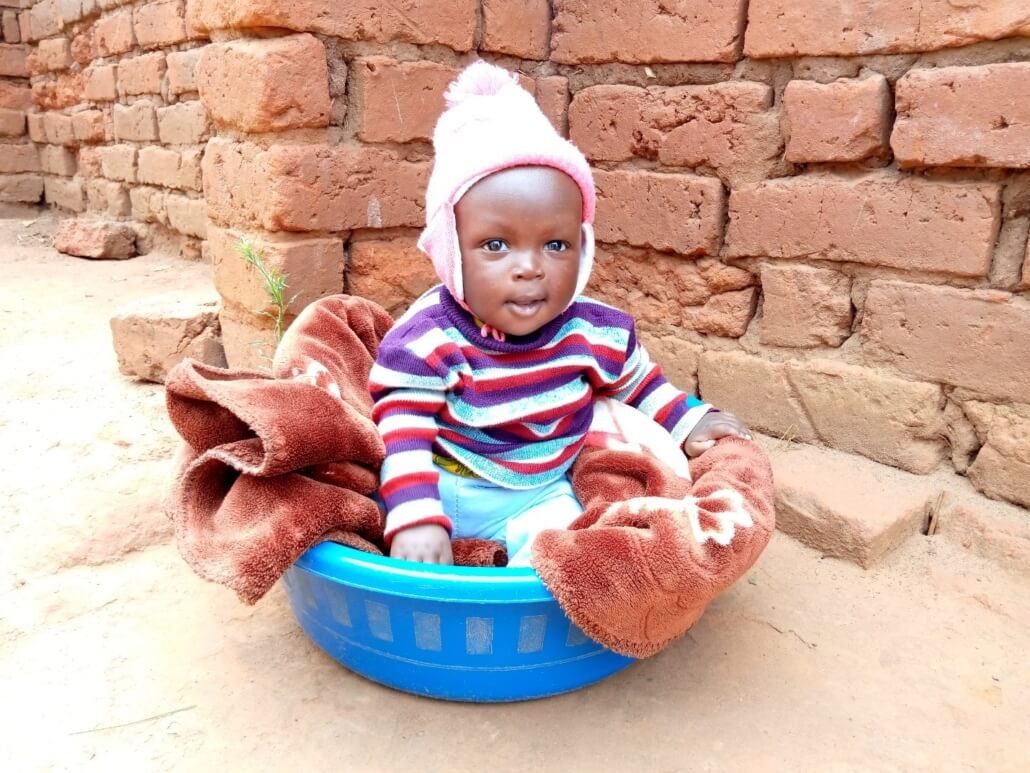
If you have been using the clinic services in Ipalamwa, how are they different from medical services available before the clinic opened?
The services at the Ipalamwa General Clinic are very organized and professional because a patient can get diagnosed before receiving treatment. This is better because the medicines a patient gets are always appropriate. In other dispensaries, there is no diagnosis. They just give medicines by guessing, which is not right.
What aspects of the RCP Program have especially helped you in the last year? What have you learned and implemented at home?
My family has been doing great in the last year, although we had some health challenges. For example, my children were coughing and I managed to take them to the clinic and luckily, they are now doing well. The Ipalamwa General Clinic has helped me very much with our health. My son was not doing well, but since I’m a member of RCP, I was able to get free and safe medical services at the Ipalamwa General Clinic.
In the last year I have learned much about hygiene and I have managed to follow new practices. Boiling water has helped my family since we had a problem with stomachaches, but when I started using boiling water, it helped. These new practices have brought a positive impact to my family.
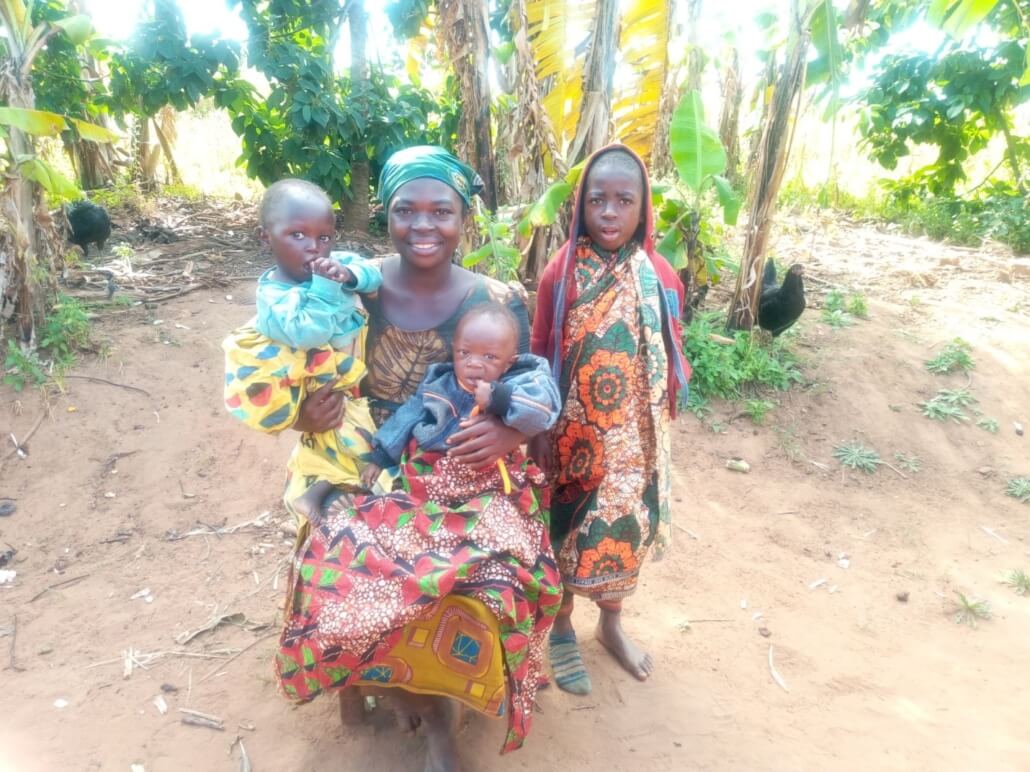
“In the last year I have learned much about hygiene and I have managed to follow new practices. These new practices have brought a positive impact to my family.”
– Tobadina Kahemela, RCP mom
What are your visions for the future and what values from your ancestors and cultures are you trying to maintain?
In our clan, we are not allowed to help feed our children potatoes. Instead, a child has to eat potatoes by himself/herself. Mothers just have to put potatoes in front of a baby so that the baby can eat by her/himself and not be fed. So children are not fed potatoes until they reach the age that they can eat by themselves. This is only with potatoes, but for other foods you can feed your baby.
What are you most proud of in your family? What plans do you have for the future? What are your hopes for your children?
I feel so happy when I see my children and I’m proud of them. In 2026, we plan to have another child. Our plan in the next few years is to expand farming so that we can provide well for our children. I hope my daughter will get higher education and become a nurse in the future. I also really hope that my two sons will get higher education and become doctors. I have been going through health challenges. That’s why I hope my children will be in medical services.

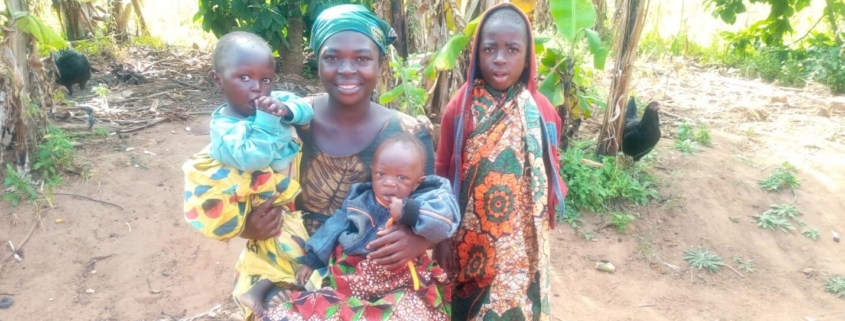


Leave a Reply
Want to join the discussion?Feel free to contribute!